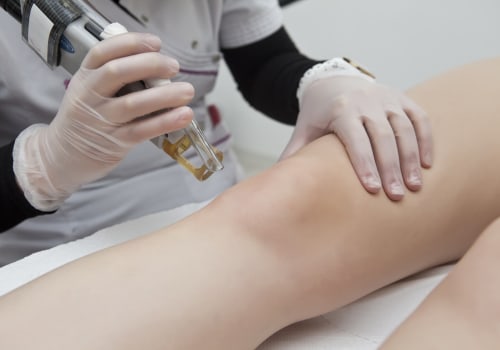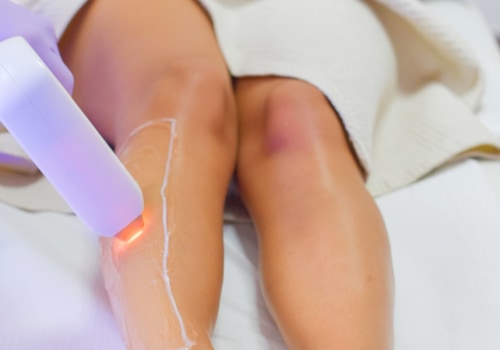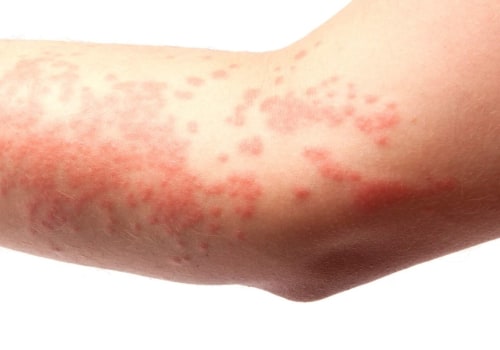Laser hair removal has become a popular method for permanently reducing unwanted hair, however, it can be especially beneficial for dark-skinned patients. Not only can laser hair removal reduce the time and money spent on shaving and other hair removal methods, it can also reduce the risk of ingrown hairs and razor burn post-treatment. Here, we explore the benefits of laser hair removal for those with dark skin and discuss the reduced risk of ingrown hairs and razor burn post-treatment.
Ingrown Hairs and Razor Burn
are two of the most common skin issues faced by dark-skinned patients. Ingrown hairs are hairs that have curled back on themselves and become trapped beneath the surface of the skin.This can cause irritation, infection, and scarring. Razor burn is a skin condition caused by improper shaving techniques, which results in a burning, stinging sensation on the skin. Both of these conditions are more common in dark-skinned patients than in other groups, due to their thicker and more resilient hair follicles.
Laser Hair Removal
is a treatment that can help reduce the risk of ingrown hairs and razor burn post-treatment.It works by targeting the root of the hair follicle, destroying it and preventing future growth. The laser targets the pigment in the hair follicle, so it is more effective on dark-skinned patients than on lighter skin tones. As a result, laser hair removal can help reduce the risk of ingrown hairs and razor burn post-treatment in dark skinned patients.
Side Effects
of laser hair removal include temporary redness or discoloration of the skin.This usually fades within a few days, but it is important to follow the instructions of your practitioner for best results. Other rare side effects can include pain, swelling, or an infection in the area being treated.
Advantages
of laser hair removal for dark-skinned patients include reduced risk of ingrown hairs and razor burn post-treatment. Not only does laser hair removal reduce the risk of these skin issues, but it also offers long-term hair reduction with minimal discomfort. Additionally, there is no recovery time required after treatment, so patients can get back to their daily activities right away.How Laser Hair Removal Reduces Risk
Laser hair removal works by targeting the root cause of ingrown hairs and razor burn, which is the overgrowth of hair follicles.The laser beam is directed at the hair follicles, heating and destroying them. This prevents them from growing back and eliminates the risk of ingrown hairs and razor burn. In addition to targeting the underlying cause of ingrown hairs and razor burn, laser hair removal can also reduce the amount of skin irritation caused by shaving. By using a laser to remove hair, there is less chance of having to shave multiple times a day and therefore less irritation to the skin.
This can help reduce the risk of ingrown hairs and razor burn post-treatment. Finally, laser hair removal treatments can also help reduce the risk of infection caused by ingrown hairs and razor burn. By targeting the root cause of these issues, laser treatments can help reduce the risk of infection from bacteria or fungi that can be introduced into the skin via an ingrown hair or razor burn.
Advantages of Laser Hair Removal for Dark Skinned Patients
For dark-skinned patients, laser hair removal treatments offer several advantages that can improve the overall quality of their skin. One of these advantages is a reduced risk of ingrown hairs and razor burn post-treatment.Laser hair removal treatments use a beam of light to heat and damage the hair follicles, making them less likely to regrow. This reduces the chance of ingrown hairs, which can cause painful bumps on the skin and can be difficult to treat. Additionally, laser treatments reduce the risk of razor burn, which is a common side effect of traditional shaving. Razor burn can cause redness, itching, and discomfort in the affected area. Another advantage of laser hair removal for dark-skinned patients is that it can help reduce skin discoloration and hyperpigmentation.
Dark-skinned patients are more prone to discoloration caused by ingrown hairs, which can be minimized with laser treatments. Additionally, laser treatments stimulate collagen production in the skin, which can reduce wrinkles and other signs of aging. Finally, laser hair removal treatments are generally considered safe for dark-skinned patients, although there are some potential side effects that should be discussed with a qualified medical professional before undergoing treatment.
The Causes of Ingrown Hairs and Razor Burn
Ingrown hairs and razor burn are common skin irritations that occur after shaving. They are more common in dark skinned patients than other groups due to the nature of their hair and skin.When a person shaves, the hair follicle is cut off at the surface of the skin. In some cases, the hair follicle may grow back into the skin instead of out of it, leading to an ingrown hair. This can cause inflammation, redness, itching, and pain. Razor burn is another common skin irritation that occurs after shaving.
It is caused by the trauma of razor blades against the skin, which can cause irritation and inflammation. Razor burn can also lead to bumps, redness, and discomfort. Both ingrown hairs and razor burn can lead to infection if left untreated. In some cases, they can also lead to permanent scarring. Therefore, it is important to take steps to reduce the risk of these skin irritations.
Dark skinned patients are more prone to ingrown hairs and razor burn than other groups due to the coarser texture of their hair and thicker layers of their skin. Therefore, it is especially important for dark skinned patients to take steps to prevent these skin irritations. Laser hair removal is one way to reduce the risk of ingrown hairs and razor burn in dark skinned patients.
Potential Side Effects of Laser Hair Removal
Laser hair removal can be a great solution for dark skinned patients looking to reduce the risk of ingrown hairs and razor burn post-treatment. However, it is important to understand the potential side effects of this treatment.Common side effects include temporary redness or discoloration of the skin, as well as occasional swelling or itching. While these side effects are generally mild and will dissipate over time, there are a few ways to minimize them. One way to minimize side effects of laser hair removal is to stay hydrated before and after each treatment. Keeping the skin hydrated helps to reduce inflammation and improve skin healing.
Additionally, it is important to wear sunscreen and keep the treated area covered while outdoors. This will help to prevent further discoloration of the skin from sun exposure. It is also important to avoid harsh products, such as exfoliants or chemical peels, in the days following a laser hair removal treatment. These products can irritate the skin and worsen any inflammation or redness.
It is best to stick to gentle, hydrating products that will help soothe the skin and reduce discomfort. Laser hair removal is a safe and effective way for dark skinned patients to reduce their risk of ingrown hairs and razor burn post-treatment. With proper aftercare, potential side effects can be minimized, making laser hair removal an excellent option for those looking to reduce the risk of ingrown hairs and razor burn. Laser hair removal treatments provide dark skinned patients with a number of advantages, including a reduced risk of ingrown hairs and razor burn post-treatment.







